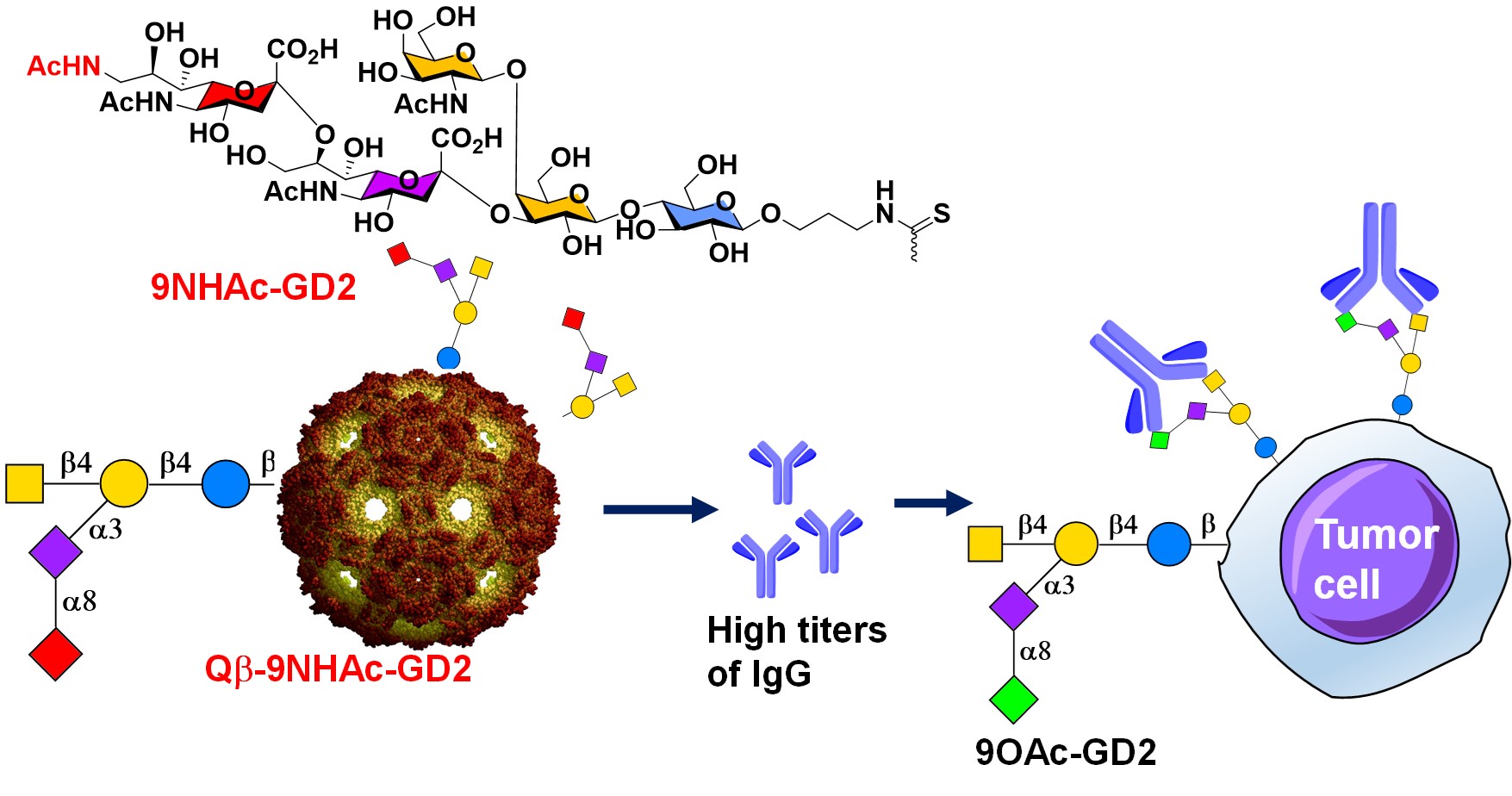
The creation of effective anticancer vaccines targeting tumor-associated carbohydrate antigens (TACAs) represents a critical national priority in advancing global healthcare. However, current TACA-based vaccines face a major limitation: the elicited antibody responses are often insufficient in both quality (affinity/specificity) and quantity (titer/persistence) to achieve broad clinical efficacy across diverse patient populations.
To address this challenge, we developed a revolutionary vaccine platform that utilizes Qβ virus-like particles (VLPs) to deliver TACAs. This approach has led to unprecedented improvements in antibody responses against two difficult malignancies.
In our breast cancer immunotherapy research, we identified a key protective epitope, SAPDT*RPAP. We engineered a groundbreaking Qβ-MUC1-Tn vaccine that successfully overcame immune tolerance in transgenic models. This vaccine produced record-breaking IgG titers exceeding 1 million—the highest ever reported for MUC1 vaccines—while demonstrating significant suppression of metastatic progression (JACS 2018).
In our efforts to combat high-risk neuroblastoma, we developed the first-in-class Qβ-9NHAc-GD2 vaccine, which features a synthetic 9-N-acetyl-GD2 antigen. This innovative formulation generated IgG titers 70 times greater than those of conventional KLH-GD2 vaccines, while maintaining an excellent safety profile in canine studies (Angew. Chem. 2021).
Ongoing research in our laboratory focuses on advancing this platform to develop the next generation of carbohydrate-based anticancer vaccines. We are engineering vaccines capable of inducing robust, durable antibody responses that meet the stringent requirements for clinical translation, with the ultimate goal of bringing these transformative immunotherapies to patients.